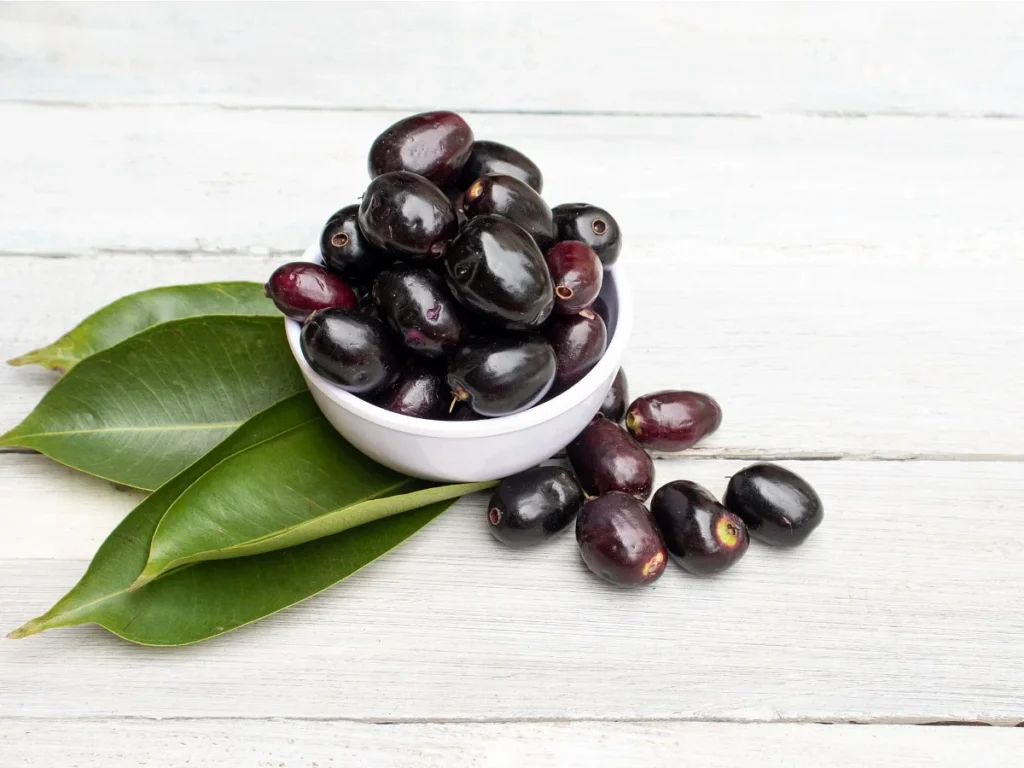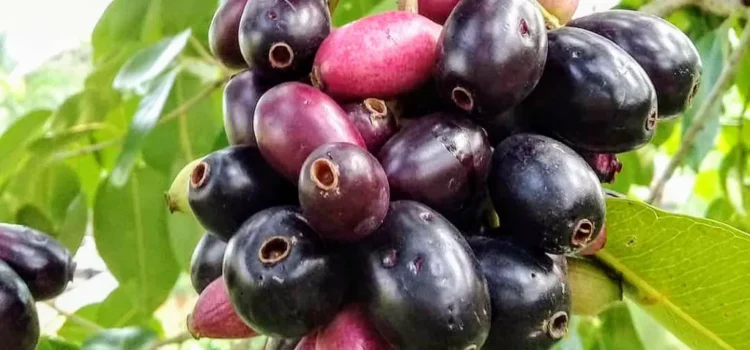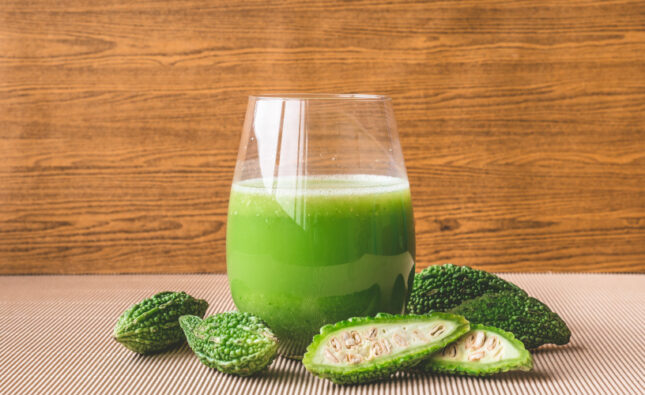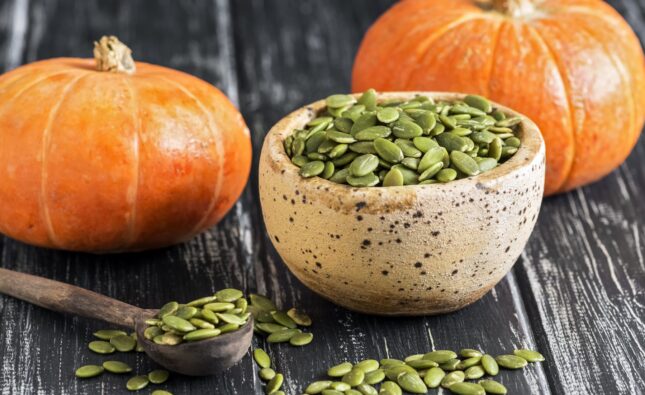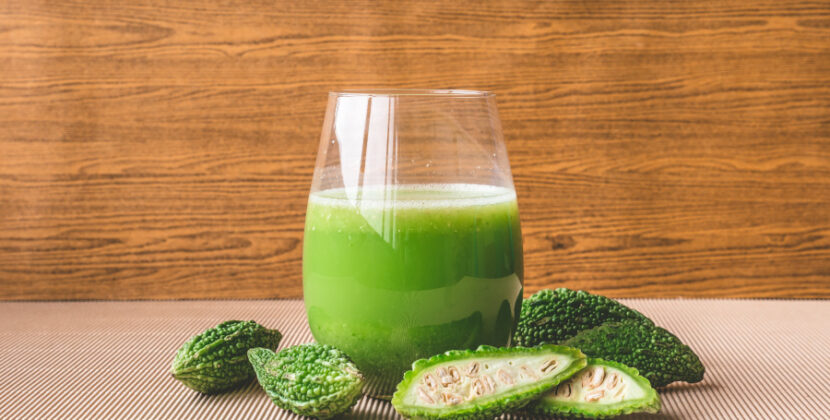Health Benefits of Jamun & Its Nutrients Values
Jamun, also known as black plum or Indian blackberry, is a fruit with a deep purple to black colour. It is native to the Indian subcontinent and is widely consumed for its delicious taste and numerous health benefits. Jamun, scientifically known as Syzygium cumini. The fruit is highly appreciated for its delectable taste, making it a favourite among many fruit lovers.
Apart from being a delicious treat, jamun holds significant cultural and medicinal importance in the Indian subcontinent. In Ayurvedic medicine, different parts of the jamun tree, including the fruit, seeds, bark, and leaves, are utilized for their therapeutic properties. These include astringent, anti-diabetic, anti-inflammatory, and diuretic qualities. The fruit is often used in traditional remedies to address various health issues, such as diabetes, digestive problems, sore throat, and skin conditions.
Jamun is considered a seasonal fruit, with its peak availability during the summer months in tropical regions like India. During this time, it’s dark, rich colour dominates fruit markets, attracting consumers eager to Savor its luscious taste and reap its health benefits. Beyond its culinary and medicinal uses, jamun serves other purposes. The fruit’s dark purple to black hue is employed as a natural dye in certain regions, and the tree itself is esteemed for its environmental benefits. The jamun tree is hardy, adaptable to various soil conditions, and aids in preventing soil erosion, making it a valuable addition to sustainable farming practices.
Throughout history, jamun has been mentioned in various cultural and religious texts, adding to its significance in Indian folklore and mythology. It is associated with Lord Krishna, a beloved deity in Hinduism, who is said to have cherished the fruit. As a result, jamun has become deeply ingrained in cultural traditions and festivities. While jamun offers a myriad of health benefits and cultural value, it is essential to consume it in moderation, like any other food. Excessive consumption may cause stomach upset due to its astringent properties. As with any dietary change, individuals with allergies or medical conditions should consult healthcare professionals before adding jamun or any new food to their diet.
Overall, jamun remains a delightful fruit that not only delights taste buds but also contributes to traditional medicine, cultural heritage, and environmental sustainability. Its appeal goes beyond its striking appearance and succulent taste, making it a cherished part of the tropical fruit landscape.
Below are some of the key health benefits of jamun:
1. Rich in Nutrients:
Jamun is packed with essential vitamins and minerals. It contains vitamin C, vitamin A, vitamin B complex (including B1, B2, B3, and B6), iron, calcium, magnesium, potassium, and antioxidants like anthocyanins and flavonoids.
2. Antioxidant Properties:
Anthocyanins and other antioxidants in jamun help to neutralize harmful free radicals in the body, reducing oxidative stress. This can help prevent cell damage and protect against various chronic diseases.
3. Diabetes Management:
Jamun is particularly beneficial for people with diabetes. It has anti-diabetic properties and can help lower blood sugar levels. The fruit’s seeds and leaves contain compounds that aid in insulin sensitivity, making it a valuable addition to a diabetic diet.
4. Digestive Health:
The high fibre content in jamun promotes healthy digestion and aids in relieving constipation. It also helps maintain a healthy gut environment by supporting the growth of beneficial gut bacteria.
5. Heart Health:
The antioxidants in jamun help to reduce bad cholesterol levels (LDL cholesterol) and prevent the oxidation of cholesterol, reducing the risk of heart disease. Additionally, the potassium content in jamun helps regulate blood pressure.
6. Immune Boosting:
Jamun’s vitamin C content boosts the immune system and helps the body fight off infections and illnesses.
7. Skin Benefits:
The antioxidants present in jamun contribute to healthy and radiant skin by fighting oxidative stress, which can lead to premature aging. Jamun extracts are also used in skincare products for their benefits.
8. Weight Management:
Jamun is a low-calorie fruit with a good amount of dietary fiber. Including jamun in your diet can help with weight management and satiety.
9. Anti-inflammatory Properties:
Jamun has anti-inflammatory effects that can help reduce inflammation and ease symptoms of conditions like arthritis.
10. Cancer Prevention:
Some studies suggest that the antioxidants and phytochemicals in jamun may have anticancer properties and could potentially inhibit the growth of cancer cells.
Nutrient Value of Jamun:
Jamun is a nutrient-rich fruit that provides essential vitamins and minerals. It is particularly notable for its vitamin C content, which contributes to the immune-boosting properties of the fruit. The fruit also contains a fair amount of antioxidants, such as anthocyanins and flavonoids, which help protect cells from oxidative stress.
Additionally, jamun’s low calorie and high dietary fibre content make it a suitable option for those looking to manage their weight and improve digestive health. The presence of various vitamins and minerals further adds to its health benefits, supporting overall well-being when included as part of a balanced diet.
The values below are based on a standard serving size of 100 grams of raw jamun fruit:
- Energy: 60-70 calories
- Carbohydrates: 14-16 grams
- Dietary Fiber: 0.6-1.5 grams
- Sugars: 10-15 grams
- Protein: 0.9-1.2 grams
- Fat: 0.1-0.23 grams
- Vitamin C: 18-20 milligrams
- Vitamin A: 55-60 international units (IU)
- Vitamin B1 (Thiamine): 0.01 milligrams
- Vitamin B2 (Riboflavin): 0.05 milligrams
- Vitamin B3 (Niacin): 0.3-0.4 milligrams
- Vitamin B6 (Pyridoxine): 0.04-0.06 milligrams
- Vitamin E: 0.19-0.27 milligrams
- Vitamin K: 6.4 micrograms
- Calcium: 15-20 milligrams
- Iron: 0.19-0.58 milligrams
- Magnesium: 15-20 milligrams
- Phosphorus: 15-20 milligrams
- Potassium: 79-88 milligrams
- Zinc: 0.06-0.19 milligrams
- Copper: 0.09-0.17 milligrams
- Manganese: 0.07-0.27 milligrams
